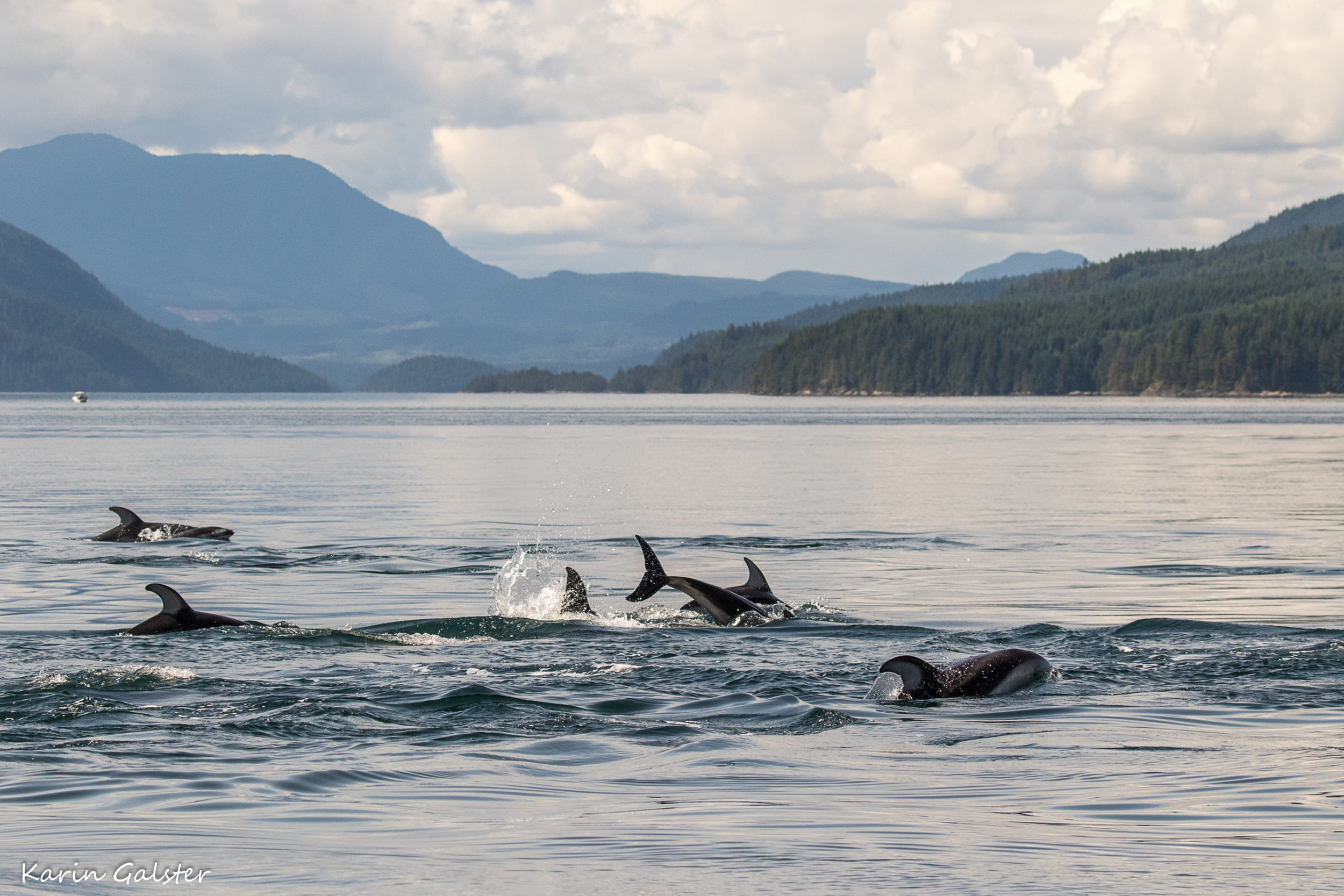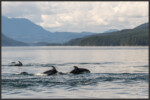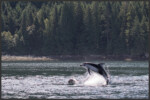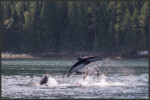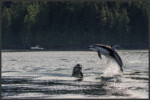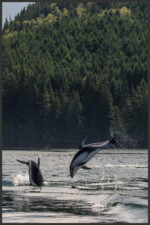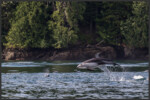The term dolphin is used to describe a large number of different species of toothed whales belonging to various different groups in the complex and regularly revised scientific classification system. Best known are no doubt the oceanic dolphins forming a family of marine mammals (Delphinidae) that live in the sea (as opposed to river dolphins) and also include killer whales and pilot whales. (despite their vernacular name ”whale” they are genetically dolphins). Oceanic dolphins typically have torpedo-shaped bodies with bulbous heads and long snouts (some exceptions) as well as limbs modified into flippers (pectoral fins) and a hook-shaped dorsal fin. Dolphins, like other cetaceans, are highly intelligent animals, able to learn, communicate, cooperate and grieve.
In the waters of Discovery Passage around Vancouver Island we were lucky to come across a pod of Pacific white-sided dolphins (Lagenorhynchus obliquidens) that we were able to watch for a considerable time. The species is of average size and its colours make it relatively easy to identify in the field. The Pacific white-sided dolphin has a dark grey back, flippers and dorsal fin, contrasting against its off-white chin, belly and throat. On the sides they have light grey patches with a stripe in the same colour that runs all the way from above the eye down to below the dorsal fin. White-sided dolphins are highly sociable animals who like to swim and hang out in close-knit groups between 10 and 100. They form very close social bonds and regularly look after injured or sick individuals. They use a number of different vocalizations such as whistle-sounds and clicks to communicate with and to recognise each other.
As we saw for ourselves, they are very active and playful and will happily approach boats and bow-ride. Maybe this is partly why the white-sided dolphin, along with the even more popular bottlenose dolphin regularly has to perform circus tricks in marine theme park shows……. Knowing that neither the biggest basin, nor the highest standards of animal welfare in theme parcs will ever be good enough and that being kept in captivity drastically reduces the dolphins’ life expectancies, it is difficult to imagine that anybody would still want to pay to see such shows. If you really love dolphins, sign up with a small local boat operator with whom one is able to watch these wonderful, intelligent creatures free and happy where they should be, out in the wild ocean!
